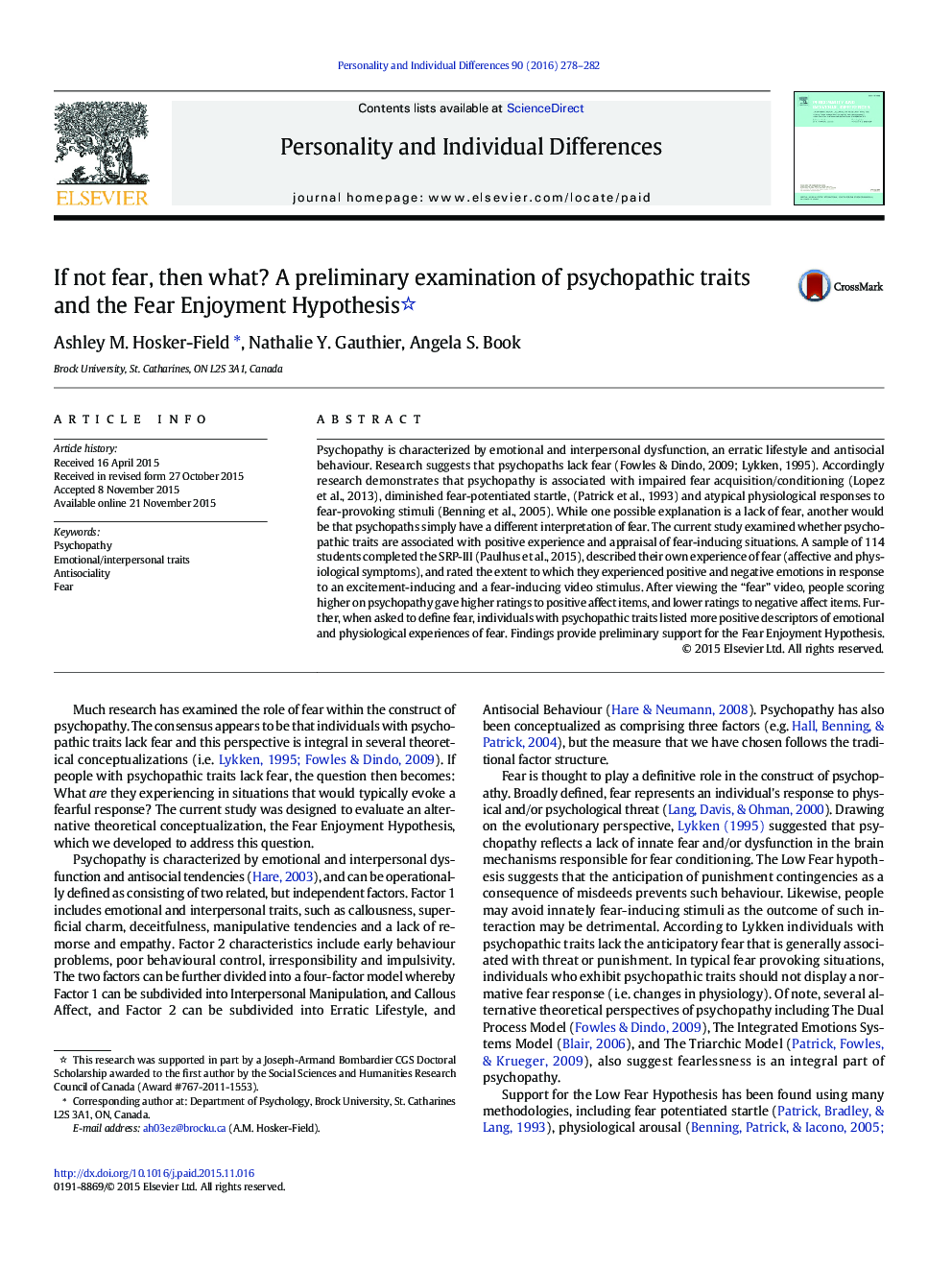| Article ID | Journal | Published Year | Pages | File Type |
|---|---|---|---|---|
| 889859 | Personality and Individual Differences | 2016 | 5 Pages |
•The relationship between psychopathy and positive appraisals of fear was examined.•Psychopathic traits were related to positive appraisal of a fear-inducing stimulus.•Psychopathic traits were associated with positive open-ended descriptions of fear.•Findings provide preliminary support for the Fear Enjoyment Hypothesis.
Psychopathy is characterized by emotional and interpersonal dysfunction, an erratic lifestyle and antisocial behaviour. Research suggests that psychopaths lack fear (Fowles & Dindo, 2009; Lykken, 1995). Accordingly research demonstrates that psychopathy is associated with impaired fear acquisition/conditioning (Lopez et al., 2013), diminished fear-potentiated startle, (Patrick et al., 1993) and atypical physiological responses to fear-provoking stimuli (Benning et al., 2005). While one possible explanation is a lack of fear, another would be that psychopaths simply have a different interpretation of fear. The current study examined whether psychopathic traits are associated with positive experience and appraisal of fear-inducing situations. A sample of 114 students completed the SRP-III (Paulhus et al., 2015), described their own experience of fear (affective and physiological symptoms), and rated the extent to which they experienced positive and negative emotions in response to an excitement-inducing and a fear-inducing video stimulus. After viewing the “fear” video, people scoring higher on psychopathy gave higher ratings to positive affect items, and lower ratings to negative affect items. Further, when asked to define fear, individuals with psychopathic traits listed more positive descriptors of emotional and physiological experiences of fear. Findings provide preliminary support for the Fear Enjoyment Hypothesis.
